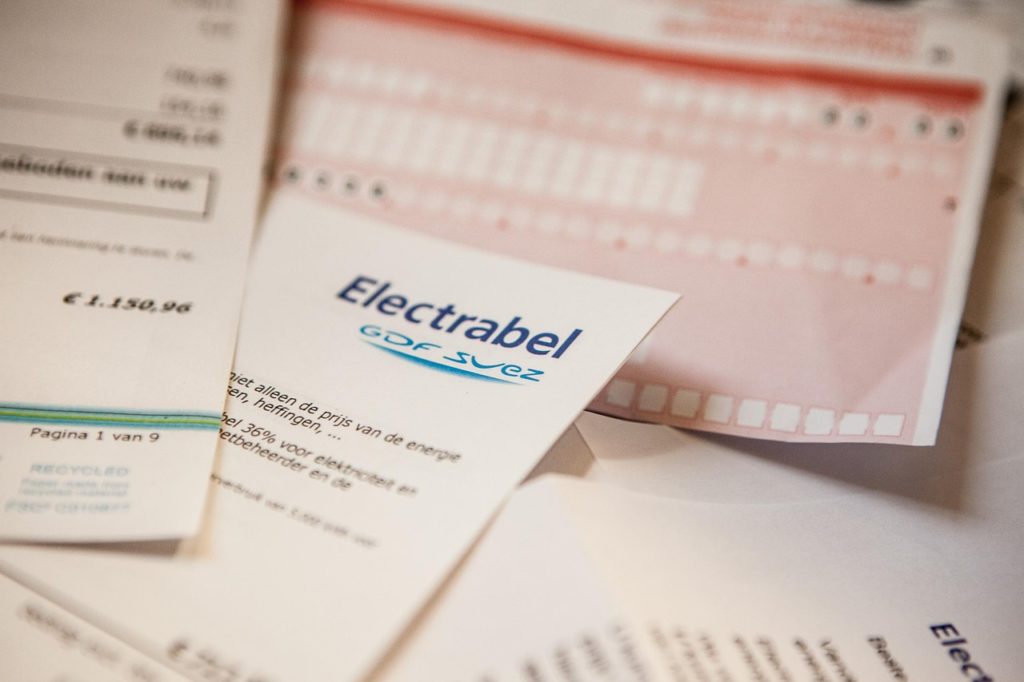A reform to simplify energy bills in response to increased gas and electricity prices was approved by the Flemish Parliamentary Commission for Energy on Tuesday.
After being on the table for years, the government gave the green light to the introduction of the energy standard. This means that price increases due to federal levies – taxes on electricity bills that currently provide the government with an additional €200 million a year – will no longer be automatically passed on to the bill.
Instead, these will be replaced by a one-off excise duty, which will allow the bill to remain constant. This reform should reduce domestic energy bills by €103 million in 2022, according to Energy Minister Tinne Van der Straeten.
"Not words, but deeds: after ten years the energy standard becomes a fact. Structural simplification of energy bills for households and companies. The energy standard has been approved by the energy committee without one opposing vote," Minister of Finance Vincent Van Peteghem wrote on Twitter.
Geen woorden, maar daden: na 10 jaar wordt de #energienorm een feit. Structurele vereenvoudiging van energiefactuur voor gezinnen én bedrijven.
Een doorbraak samen met @TinneVdS, alvast goedgekeurd in de commissie energie zonder tegenstem.@DeKamerBE @cdenv @leendierick — Vincent Van Peteghem (@vincent_v_p) December 7, 2021
A durable system
As part of the reform, the government will be able to intervene more easily when energy prices rise sharply, as was the case in previous months, especially for natural gas prices, which “far exceeded the historic highest level of 2007-2008 before the financial crisis" in October.
A Royal Decree will be published specifying how energy suppliers will calculate annual consumption, for example, in the case of consumers who switched suppliers and whose annual consumption is not yet known.
Van der Straeten labelled this "a big step forward," but said that the energy standard introduction alone is not enough, referring to a tax shift from electricity to gas to reward more sustainable energy use. "The mechanics to do that are now in place."
The effect on energy providers
The hike in energy prices has not only hit private individuals and businesses. They also affected energy suppliers who do not produce energy themselves but buy it wholesale. The recent spike in prices even resulted in the bankruptcy of Flemish energy supplier "Vlaamse Energieleverancier."
The company was known for being active on the so-called "spot" or short-term market where companies can buy electricity and gas one day in advance and sell it the next day to their customers, meaning the prices of its long-term contracts were often lower because the starting periods dated back to times when costs were cheaper.
Related News
- Prices are skyrocketing, but wages aren’t: Unions protest at Brussels North Station
- Financial assistance for households facing rising energy bills this winter
- Warnings of 'frighteningly' high electricity bills in November
Yet this spot market became especially volatile as prices rose sharply, resulting in the company having to buy overpriced electricity and gas on the wholesale market and selling them at a loss. This situation became untenable and the company announced its bankruptcy Tuesday.
"The extreme energy prices that we are currently experiencing were not foreseeable. As a result, the challenges of bridging the winter months have unfortunately become too great for us and we have therefore had to make the very difficult decision to cease our activities," the company stated on its website.
A struggling sector
This was the second bankruptcy on the Belgian energy market this year. In response, Flemish MP Robrecht Bothuyne has put forward a series of proposals to protect consumers from the fallout of companies ceasing their activities and to reduce the likelihood of bankruptcies in the energy sector.
This includes allowing digital meter customers to opt for monthly billing based on actual usage rather than the advanced billing system which would see clients have to reclaim money from companies when they go bankrupt.
He also proposed a stress test for energy suppliers, which would be linked to their licence. "This way, we avoid poorly capitalised energy suppliers getting into trouble and we protect the customers," he told Belga News Agency.

